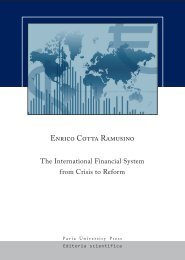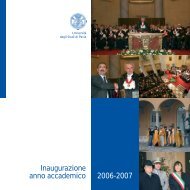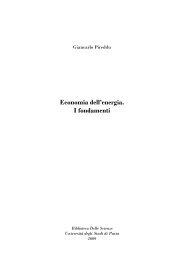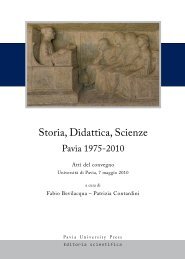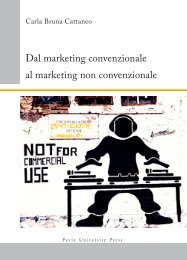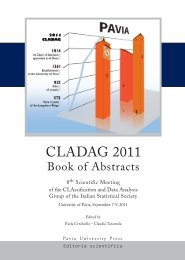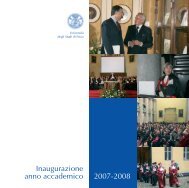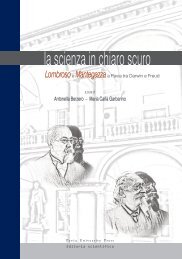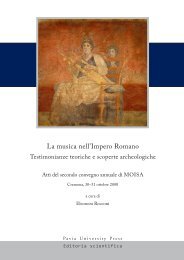The Palestinian Economy. Theoretical and Practical Challenges
The Palestinian Economy. Theoretical and Practical Challenges
The Palestinian Economy. Theoretical and Practical Challenges
Create successful ePaper yourself
Turn your PDF publications into a flip-book with our unique Google optimized e-Paper software.
Section 5: Main Conclusions<br />
Policy Statement on the <strong>Palestinian</strong> Economic Situation *<br />
Margarita Olivera <br />
1. Some stylized facts on Palestine economy<br />
After the Six-Day War (1967) <strong>and</strong> until the beginning of the nineties, Palestine has been<br />
exposed to the direct Israeli military, economic <strong>and</strong> administrative control. Since the 2000<br />
Second Intifada <strong>and</strong> after the 2006 Hamas’ electoral victory, the military conflict was<br />
worsened <strong>and</strong> has sharpened the movement restrictions both of goods <strong>and</strong> of people,<br />
strongly affecting the Palestine economy.<br />
Analysing the macroeconomic outlook of today Palestine is hardly possible without<br />
referring to the Paris Protocol, which has been part since 1994 of the legal <strong>and</strong><br />
institutional backbone defining the rules of the game applicable to the domestic economy,<br />
as well as to its relationships with Israel. It has become evident from the beginning that<br />
the power relations crystallized in the Paris Protocol were asymmetric, sharpening the<br />
<strong>Palestinian</strong> dependence on the Israel trade regime <strong>and</strong> currency.<br />
After the Protocol was set up, there is a spurious custom union, where the foreign<br />
trade policy is out of control of the <strong>Palestinian</strong> government <strong>and</strong> is unilaterally determined<br />
by Israel. Indeed, the de jure customs union designed by the Paris Protocol between<br />
Palestine <strong>and</strong> Israel is unilaterally rather than bilaterally determined <strong>and</strong> some of its key<br />
* <strong>The</strong> present chapter is a conclusive summary drawing on the main policy implications discussed in the<br />
papers, which are included in this book, as well as on discussions which emerged in the two-day conference<br />
on Palestine’s economy held on 15-16 June 2010 in Pavia.<br />
University of Pavia. Email: margarita.olivera@unipv.it.





